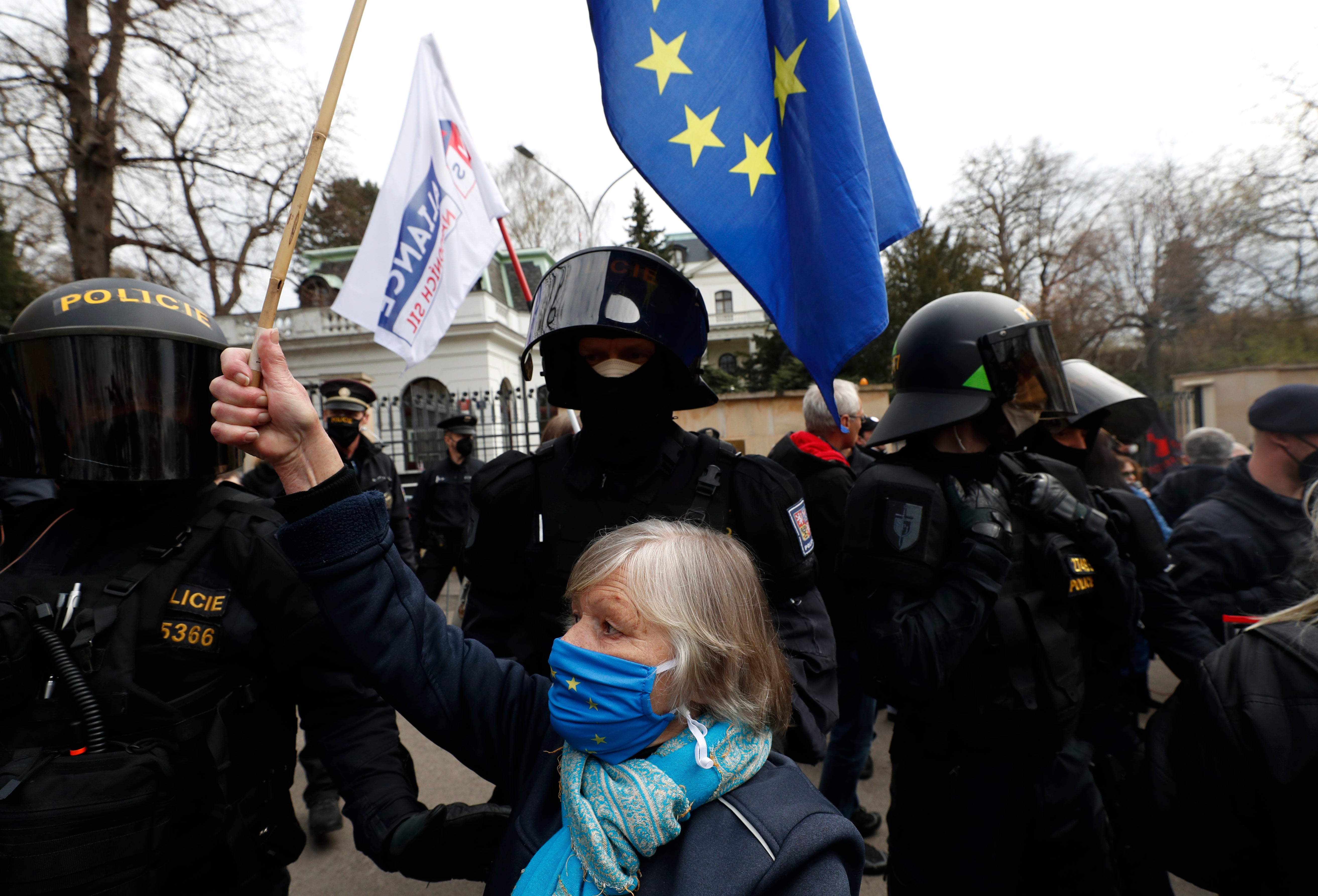EU foreign ministers talk amid uproar over Ukraine, Navalny
European Union foreign ministers are pondering the bloc’s strategy toward Russia in the wake of the military buildup on Ukraine’s borders and amid the weakening health of imprisoned opposition leader Alexei Navalny

Your support helps us to tell the story
From reproductive rights to climate change to Big Tech, The Independent is on the ground when the story is developing. Whether it's investigating the financials of Elon Musk's pro-Trump PAC or producing our latest documentary, 'The A Word', which shines a light on the American women fighting for reproductive rights, we know how important it is to parse out the facts from the messaging.
At such a critical moment in US history, we need reporters on the ground. Your donation allows us to keep sending journalists to speak to both sides of the story.
The Independent is trusted by Americans across the entire political spectrum. And unlike many other quality news outlets, we choose not to lock Americans out of our reporting and analysis with paywalls. We believe quality journalism should be available to everyone, paid for by those who can afford it.
Your support makes all the difference.European Union foreign ministers on Monday were assessing the bloc's strategy toward Russia in the wake of the military buildup on Ukraine s borders and amid the weakening health of imprisoned opposition leader Alexei Navalny
On top of that, the diplomatic standoff between EU member state the Czech Republic and Russia over tit-for-tat diplomatic expulsions following Prague's accusation that Moscow was involved in a 2014 ammunition depot explosion, is adding further tension between both sides.
Diplomats said there was little to no chance of immediate new sanctions on Moscow, but they will seek to apply pressure nevertheless. In Germany, some politicians have called for an end to the Nord Stream 2 gas pipeline project with Russia.
And over the weekend, French President Emmanuel Macron said that while dialogue with Russia is essential, “clear red lines” carrying possible sanctions must also be drawn with Moscow over Ukraine.
EU foreign policy chief Josep Borrell already criticized the Kremlin for its arrest and treatment of Navalny on Sunday and insisted he should have access to medical professionals he trusts.
“All in all, the relations with Russia, are not improving, but the contrary, the tension is increasing in different fronts,” Borrell said in a statement ahead of Monday's meeting.
At the same time the 27 foreign ministers will have a video conference with their Ukrainian counterpart Dmytro Kuleba to underscore Western support for the government, amid escalating tensions in the country’s east and a Russian troop buildup across the border.
On Sunday, Kuleba asked for stronger Western backing, saying “words of support aren’t enough.” Kuleba spoke with his Baltic counterparts who are expected to back his call during Monday's meeting.
“We call on Russia to withdraw their troops,” said Borrell.
More than 14,000 people have died in seven years of fighting between Ukrainian forces and Russia-backed separatists in eastern Ukraine that erupted after Russia’s 2014 annexation of Ukraine’s Crimean Peninsula. The EU has steadfastly opposed the annexation but has been unable to do anything about it.
Efforts to reach a political settlement have stalled and violations of a shaky truce have become increasingly frequent in recent weeks across Ukraine’s eastern industrial heartland known as the Donbas.